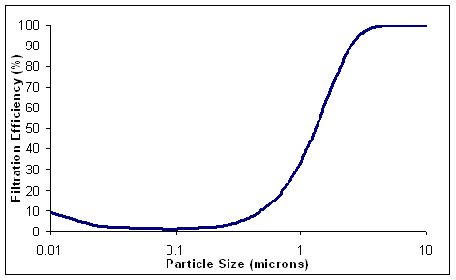

Water Filter Ratings....A Surefire Way To Choosing A Quality FilterThe availability of accurate water filter ratings and certification is crucial information to have prior to purchasing a water purifier or filter. After all, you want to be certain of a filter's ability to effectively remove the contaminants found in your tap water before spending your money. However, as important as the certification and ratings are, you need to be able to trust the source of those ratings. Some retailers may over-hype or misrepresent the qualities of the various drinking water filtration systems they sell in order to appear more appealing to buyers. One source that can always be trusted for giving accurate water filter ratings or certification is the National Sanitation Foundation - NSF International. They develop national standards for water filtration, purification and treatment systems and then certify them when the standards are met. This ensures that the respective filtering devices removes the contaminants that it purports to do.
Here is a summary of each standard: NSF/ANSI Standard 42: Drinking water filtration systems that are certified to this standard remove chlorine and particles from your water in order to improve its look, smell and taste. That is to say that these filtering devices are designed to remove only non-health-related contaminants. This highly rated whole house water filtration system is rated to this standard. NSF/ANSI Standard 44: Water treatment systems certified to this standard are generally cation exchange water softeners which are designed to eliminate water hardness. Additionally, this water filter rating can be used to certify a filter's ability to remove barium and radium. Here are more details on a quality water softener that is highly effective is solving your hard water problems. NSF/ANSI Standard 53: These water purifiers remove health-related contaminants such as waterborne organisms and industrial chemicals. For example, cryptosporidium, giardia, volatile organic chemicals (VOCs), MTBE (methyl tertiary-butyl ether) and trihalomethane compounds (THMs) can all be eliminated by these devices. These two leading point of use water filters - countertop water filter and undercounter water filter, are certified to this standard. NSF/ANSI Standard 55: The devices that are rated to this standard are point of use or point of entry ultraviolet microbiological water treatment systems. These are designed to disinfect microorganisms (such as bacteria and viruses) from your water. Read more on ultraviolet water filters. NSF/ANSI Standard 58: Devices certified to this standard are typically reverse osmosis water systems (RO). These devices are capable of fully removing organic contaminants but can only partially remove inorganics and heavy metals. Specific examples of these contaminants are fluoride, chromium and nitrates. Read more about reverse osmosis water filters. NSF/ANSI Standard 62: Devices certified to this standard are typically water distillers. Distillation removes the widest range of drinking water contaminants. Examples of these contaminants are arsenic, mercury and bacteria. Read more about distillers. NSF/ANSI Standard 177: These are Recognize that when you see a performance comparison or review of various water purifiers, there is the likelihood that no mention of NSF water filter rating will be made. This is not to say that those water purifiers without this rating are of low quality. There are many purifiers that have not been certified by the NSF itself but rather have been certified to a NSF standard by a reputable independent lab. All of these Reputable drinking water filter retailers ought to have performance data available online or in hard copy. And, if no mention is made of NSF certification, ask the retailer to provide proof as to whether the filtering unit is certified by or to a NSF standard. Whilst it is an undisputed fact that getting a home water filter will vastly improve the water quality in your home, no one filter is able to remove all contaminants. There are so many filter systems on the market, it can all get a bit confusing as to which is a good choice for you. This is why you need accurate water filter ratings, that outline the capabilities of the various filtering units. The NSF is the source of such ratings. Familiarizing yourself with these ratings will help you to see beyond the hyped up sales pitch that may be presented to you when you are about to buy a filter. Not to mention, what you can save when you avoid wasting money on a filter that doesn't suit your needs.
<<< Super Tip >>>
Want safe, clean drinking water throughout your home? These Copyright © Best Water Filter Guide - Contact Us - Privacy Policy |


























